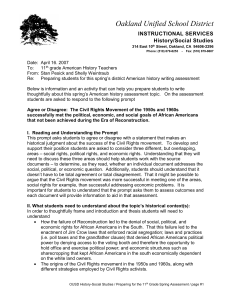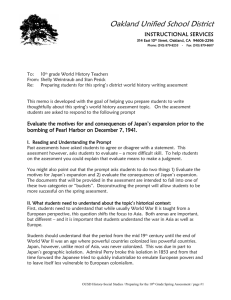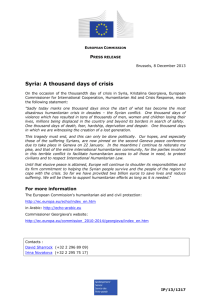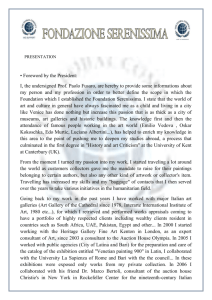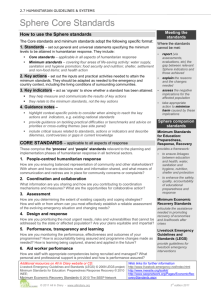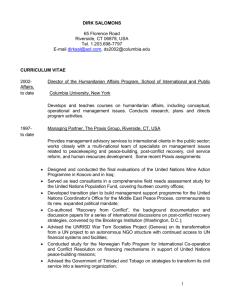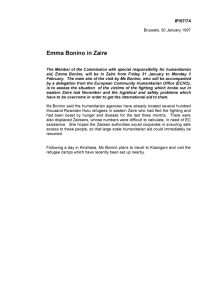HRD Memo letterhead w/tree logo - Oakland Unified School District
advertisement
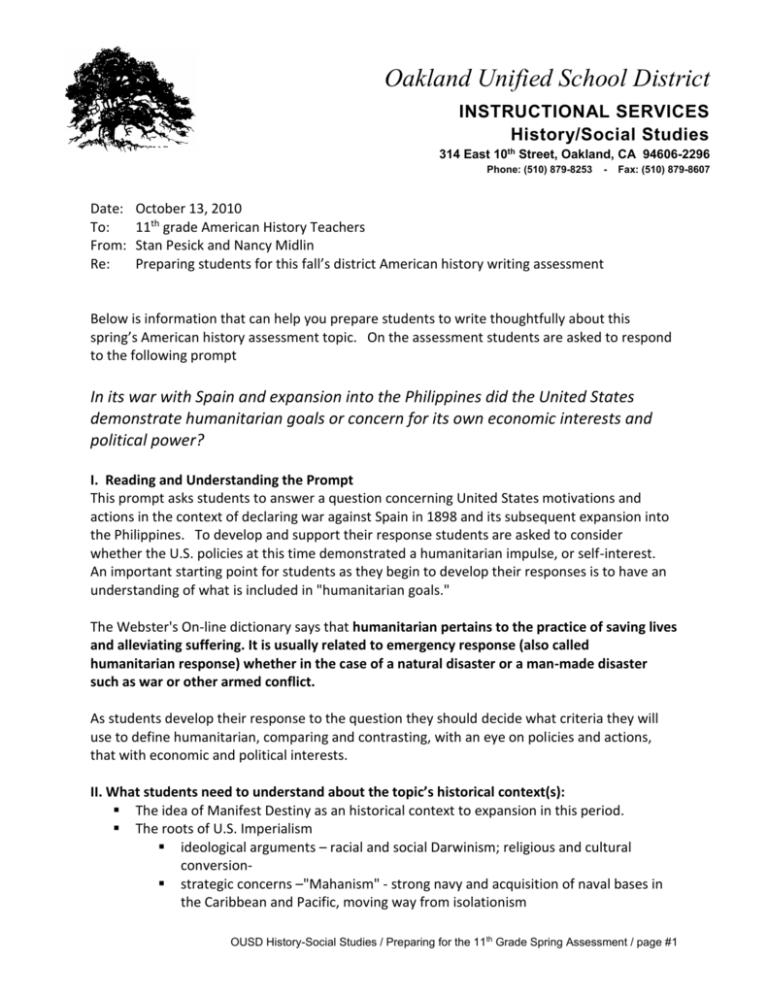
Oakland Unified School District INSTRUCTIONAL SERVICES History/Social Studies 314 East 10th Street, Oakland, CA 94606-2296 Phone: (510) 879-8253 Date: To: From: Re: - Fax: (510) 879-8607 October 13, 2010 11th grade American History Teachers Stan Pesick and Nancy Midlin Preparing students for this fall’s district American history writing assessment Below is information that can help you prepare students to write thoughtfully about this spring’s American history assessment topic. On the assessment students are asked to respond to the following prompt In its war with Spain and expansion into the Philippines did the United States demonstrate humanitarian goals or concern for its own economic interests and political power? I. Reading and Understanding the Prompt This prompt asks students to answer a question concerning United States motivations and actions in the context of declaring war against Spain in 1898 and its subsequent expansion into the Philippines. To develop and support their response students are asked to consider whether the U.S. policies at this time demonstrated a humanitarian impulse, or self-interest. An important starting point for students as they begin to develop their responses is to have an understanding of what is included in "humanitarian goals." The Webster's On-line dictionary says that humanitarian pertains to the practice of saving lives and alleviating suffering. It is usually related to emergency response (also called humanitarian response) whether in the case of a natural disaster or a man-made disaster such as war or other armed conflict. As students develop their response to the question they should decide what criteria they will use to define humanitarian, comparing and contrasting, with an eye on policies and actions, that with economic and political interests. II. What students need to understand about the topic’s historical context(s): The idea of Manifest Destiny as an historical context to expansion in this period. The roots of U.S. Imperialism ideological arguments – racial and social Darwinism; religious and cultural conversion strategic concerns –"Mahanism" - strong navy and acquisition of naval bases in the Caribbean and Pacific, moving way from isolationism OUSD History-Social Studies / Preparing for the 11th Grade Spring Assessment / page #1 economic pursuits – markets and raw materials, relieve economic pressures and depression of the 1890s The Origins of the Spanish-American War (1898) Cuba's struggle for independence from Spain - impact on U.S. economic interests - Spanish brutality – "reconcentration campe" - American sympathy with the Cubans and "Yellow Journalism" - the sinking of the Maine – February 15, 1898 - U.S. Declaration of War – April 25, 1898 - The Teller Amendment – non expansionist statement III. Textbook (American Anthem) pages and sections connected to this prompt. See “Point-ofView” study guide for reading assignment to go with these pages. “Reconstruction Ends” (pages 133 – 138) – a brief discussion of why Reconstruction ended and the effect on African Americans in the South. “Segregation and Discrimination” (p. 161-162) – a brief discussion of the rise of “Jim Crow” and the opposition to those laws. “The Civil Rights Movement” (chapter 18, pages 554 – 592). OUSD History-Social Studies / Preparing for the 11th Grade Spring Assessment / page #2

